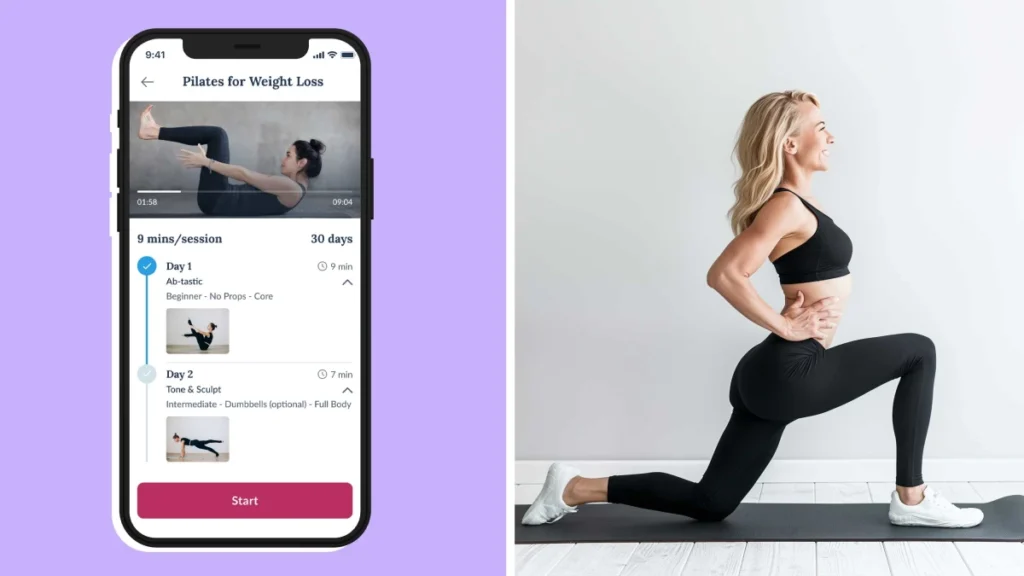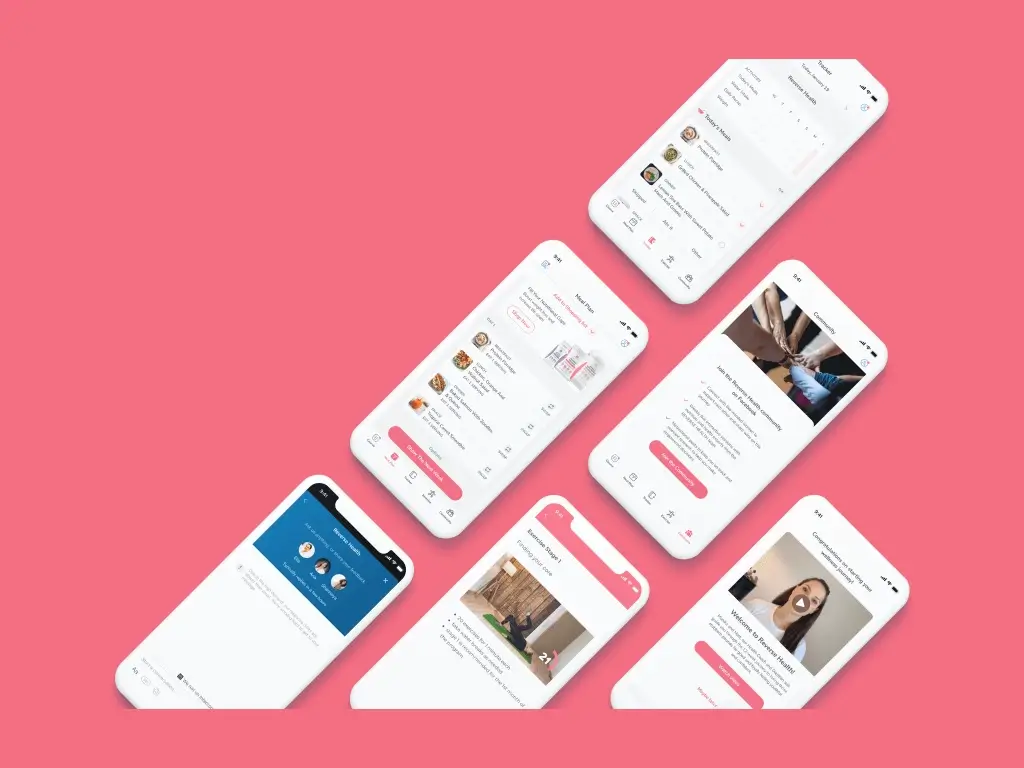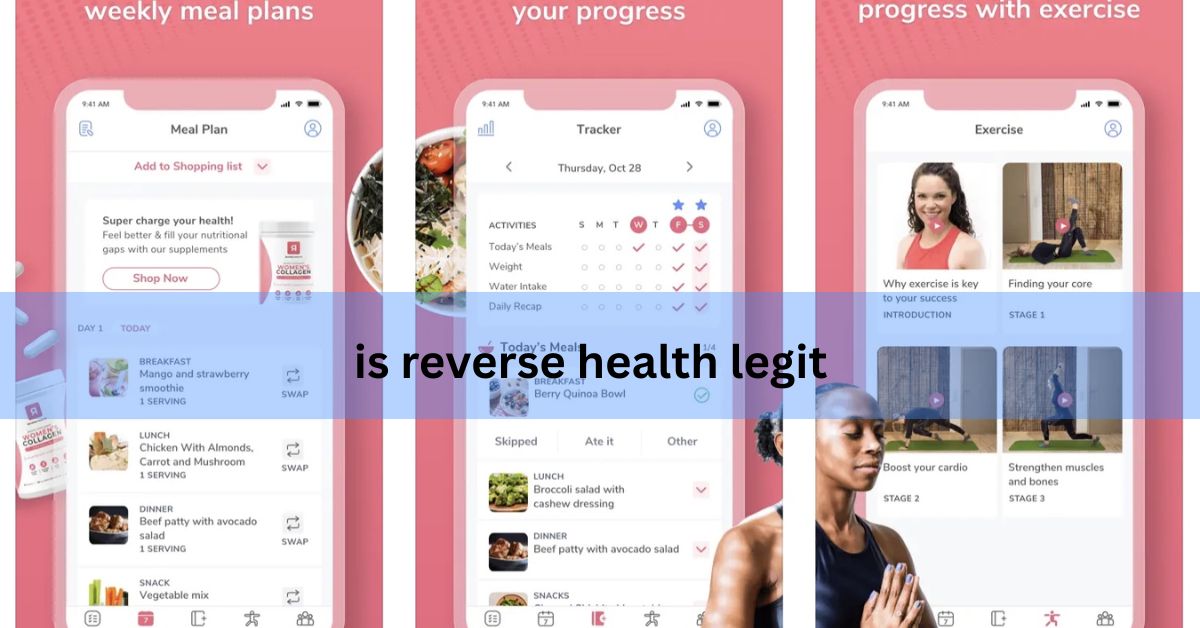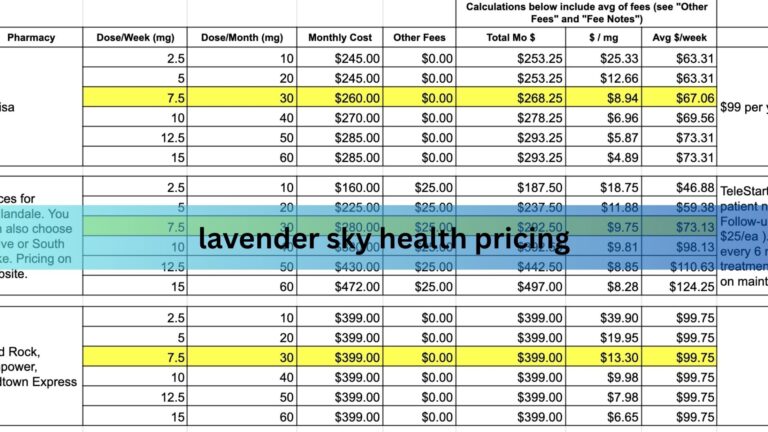Is Reverse Health Legit – A Deep Dive Into the Popular Weight Loss Program!
As personalized wellness programs gain traction in the U.S., Reverse Health has emerged as a digital platform claiming to help women over 40 lose weight and regain control of their health. With ads appearing across social media and testimonials circulating widely, many curious users are left wondering: is Reverse Health legit?
This article will examine what Reverse Health offers, analyze its claims through the lens of science and real-world experience, evaluate its credibility, and help you decide if it’s the right program for you. We go beyond surface-level summaries, delivering original insights and interpretations grounded in wellness science and user expectations.
What Is Reverse Health?
Reverse Health is a mobile app-based weight loss program that primarily targets women over the age of 40. It markets itself as a personalized nutrition and lifestyle plan that works with hormonal changes, metabolic shifts, and lifestyle challenges that often come with age. The program includes features such as custom meal plans, exercise recommendations, habit coaching, and motivational tools.
One of its most appealing selling points is that it doesn’t rely on restrictive dieting or intense workouts. Instead, it claims to take a holistic approach to wellness—addressing mindset, sleep, stress, digestion, and long-term sustainability.
How Does Reverse Health Work?

The program begins with an online quiz that gathers information about your age, current weight, height, goals, hormonal profile, and eating habits. Based on these responses, the app creates a customized 12-week plan tailored to your individual needs. It then offers daily tracking tools, community support, and guidance from certified coaches.
Unlike generic diet apps, Reverse Health emphasizes behavioral changes, hormone balance, and nutritional education rather than calorie restriction. It focuses on helping women understand how their bodies change after 40 and how to adapt accordingly.
Evaluating the Science Behind Reverse Health:
While Reverse Health positions itself as science-backed, it’s essential to look at the principles it uses to create its programs. Much of its strategy is based on concepts like intermittent fasting, anti-inflammatory diets, and stress reduction—all of which are supported by research when applied appropriately.
Intermittent fasting, for example, has shown benefits in improving metabolic health, reducing insulin resistance, and promoting fat loss. Similarly, low-inflammatory meal planning and blood sugar regulation can be particularly beneficial for women experiencing perimenopause or menopause.
However, it’s important to note that these strategies are not one-size-fits-all. Success depends on how closely the plan matches the user’s needs and how consistent they are in following it. This makes the personalization aspect of Reverse Health particularly important.
What Makes Reverse Health Different?
Many weight loss apps provide calorie counting and exercise tracking, but Reverse Health distinguishes itself by targeting age-specific metabolic changes. It includes coaching and education tailored to women’s hormonal cycles, offering specific advice for managing midlife weight gain, fatigue, and mood swings.
In addition, Reverse Health builds in behavioral psychology elements such as habit stacking, journaling prompts, and mindset reframing to encourage lasting change. These techniques are especially effective for users who have struggled with yo-yo dieting or restrictive weight loss systems.
Also Read: Is Health Care Cheaper in McAllen, Texas – A Detailed Analysis for Patients and Policy Watchers!
User Experiences: What Are People Saying?
A key part of determining whether Reverse Health is legit comes from examining real-world reviews. On the Apple App Store and Google Play, Reverse Health generally receives positive feedback, with users praising the app’s intuitive design and supportive community. Many report seeing results within a few weeks and appreciating the non-restrictive nature of the program.
However, some criticisms also exist. A common complaint is the lack of direct one-on-one coaching unless users purchase premium add-ons. Others mention that while the food suggestions are helpful, they may not always reflect diverse cultural dietary preferences or address food allergies comprehensively.
Despite this, the general sentiment leans positive, especially among users who are motivated to implement lifestyle changes and not just looking for a quick fix.
Who Is Reverse Health Best For?
Reverse Health is best suited for women aged 40 and above who are looking for a structured yet flexible approach to weight loss. It works well for those who prefer a guided plan but don’t want to commit to in-person coaching or a rigid diet. It’s also a strong choice for individuals dealing with hormonal imbalances, sluggish metabolism, or emotional eating.
On the other hand, individuals seeking fast results or those who aren’t comfortable using mobile technology may find the app less effective. Likewise, people with complex medical conditions or eating disorders should consult a healthcare provider before starting the program.
The Business Behind Reverse Health:

Understanding the legitimacy of a program also includes examining the company that runs it. Reverse Health is developed by a wellness startup that employs nutritionists, personal trainers, and behavior change experts. While it doesn’t appear to be affiliated with major medical institutions, it operates under standard digital health practices and is GDPR-compliant, suggesting a baseline level of operational integrity.
The company does not push extreme supplements or shady practices, which often mark disreputable weight loss programs. Instead, it focuses on realistic progress and education—a strong sign of legitimacy.
Is the Reverse Health app easy to use?
Yes, the Reverse Health app is generally easy to use. It features a user-friendly interface with guided plans tailored for individual goals. Most users find navigation and tracking intuitive and straightforward.
Reverse Health Pricing and Value for Money:
The app isn’t free, with the basic 12-week program priced around $39–$69 depending on discounts and promotions. Premium add-ons for personalized coaching or extended access may raise the cost.
When compared to monthly fees for gym memberships, personal trainers, or nutritionists, Reverse Health is relatively affordable. The value lies in the daily structure, support community, and educational content that can lead to long-term habit changes if utilized consistently.
FAQ’s:
1. What is the main focus of Reverse Health?
Reverse Health focuses on helping women over 40 lose weight by addressing hormonal changes, metabolic slowdowns, and lifestyle habits through personalized meal plans, wellness tracking, and mindset coaching.
2. Is Reverse Health a scam or real?
Reverse Health is a legitimate health app with thousands of users and positive reviews. It is not a scam and provides real wellness guidance based on user data and expert input.
3. Do I need a subscription to use Reverse Health?
Yes, the program requires a one-time payment or subscription fee to unlock the 12-week plan and other features. Premium services such as personal coaching may cost extra.
4. Can Reverse Health replace a nutritionist?
Reverse Health provides general nutrition guidance but does not replace one-on-one medical or dietary consultations. It can complement professional care but not substitute it.
5. What if I don’t see results?
Results depend on consistency and lifestyle. If users follow the plan and still don’t see changes, they can contact customer support or request a refund depending on the guarantee terms.
6. Is Reverse Health safe for everyone?
While generally safe for healthy individuals, those with medical conditions, pregnant women, or people with eating disorders should consult a doctor before starting the program.
7. How quickly will I see weight loss with Reverse Health?
Some users report changes within 2–4 weeks, especially in energy and mood, while sustainable weight loss typically appears after consistent effort over the full 12-week period.
8. Are there hidden costs?
The core program is a one-time fee, but additional services like coaching or extended access may come with extra charges. Always review pricing details before purchase.
9. Does Reverse Health offer a money-back guarantee?
Yes, the company offers a satisfaction guarantee, although users should check the refund policy details to ensure eligibility and time limits.
Conclusion:
Yes, based on its science-informed approach, positive user reviews, and transparency in business practices, Reverse Health appears to be a legit wellness program. It avoids quick-fix gimmicks and instead empowers women with tools for lasting change.
That said, it’s not magic. Results depend on the user’s consistency, mindset, and willingness to engage with the program fully. It’s not a replacement for medical advice, but it can be a helpful complement to a healthy lifestyle for women navigating midlife changes.
Read More:






